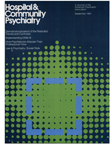Family Participation in the Community Rehabilitation of Schizophrenics
Abstract
Families of schizophrenic patients frequently are ill equipped to handle the primary caretaking responsibilities that have fallen to them due to deinstitutionalization. The authors describe a program begun at a medical center in Southern California in 1978 to assist schizophrenic patients living at home and their families. The program, which consists of family therapy sessions in the home, focuses on education about schizophrenia, development of communication skills, and acquisition of structured problem-solving and other behavioral strategies. Preliminary findings of a controlled study of program participants suggest that the family interventions are both cost-effective and highly successful in reducing the incidence of relapse and hospitalization.
Access content
To read the fulltext, please use one of the options below to sign in or purchase access.- Personal login
- Institutional Login
- Sign in via OpenAthens
- Register for access
-
Please login/register if you wish to pair your device and check access availability.
Not a subscriber?
PsychiatryOnline subscription options offer access to the DSM-5 library, books, journals, CME, and patient resources. This all-in-one virtual library provides psychiatrists and mental health professionals with key resources for diagnosis, treatment, research, and professional development.
Need more help? PsychiatryOnline Customer Service may be reached by emailing [email protected] or by calling 800-368-5777 (in the U.S.) or 703-907-7322 (outside the U.S.).



